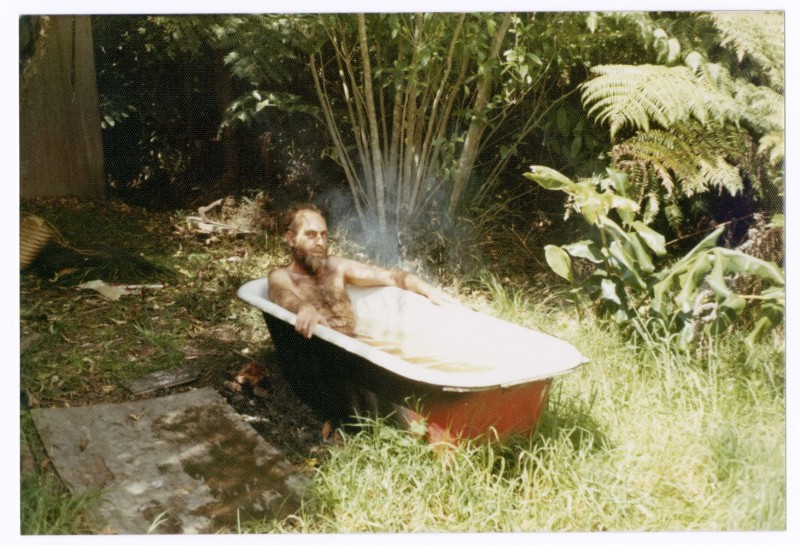Hundertwasser in Kaurinui Valley
Open Image Gallery Hundertwasser in Kaurinui
Kaurinui Valley, New Zealand, 1979
Friedensreich Hundertwasser
Unbekannt
Hundertwasser Archive
Hundertwasser came to New Zealand for the first time in 1973, where the Auckland City Art Gallery organized a large retrospective for him, which then traveled to New Plymouth, Wellington, Palmerston North and finally to the South Island to Christchurch and Dunedin. When local friends noticed his deep love for this country, they drew his attention to an overgrown area of land measuring approximately 190 hectares in the north of the North Island, on the Bay of Islands, where a farming family had raised cows and sheep for three generations Hundertwasser was able to acquire it in 1974. Here, over two and a half decades, with the help of farmer Doug Shepherd (and later Richard Smart), he planted more than 150,000 trees, which have now transformed the property in the Kaurinui Valley into a jungle-like forest landscape. To ensure that the farmhouse, built from prefabricated wooden parts, had a direct connection to the sea, Hundertwasser had a narrow canal built, which is of course only navigable at high tide. This connects the property via a disused mangrove forest with one of the many bays of the Bay of Islands (which includes a total of 144 islands). In addition to the canal (and many smaller canals and ponds that he had excavated), Hundertwasser has the Bottle House, which was primarily used as a studio (whose walls are made of empty bottles bonded to cement or mortar), the Pigsty (where he last lived and which was already more than flooded), the tree house (which stretches around the trunk of an old kauri spruce) and the Mountain Hut (built into the mountainside). They are all covered with grass roofs. Farmhouse and Pigsty are equipped with telephone and fax connections, electronic electricity is generated by solar panels and hydropower; A “plant sewage treatment plant” was installed and used in all dwellings. Hundertwasser's grave, from which a tulip tree grows, is also located on a hill on the property. It marks the type of resurrection that Hundertwasser believed in.
Wieland Schmied, in: Hundertwasser's Paradises. The hidden life of Friedrich Stowasser, Munich 2003
